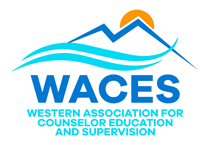Abstract
Generative Artificial Intelligence (AI) has created a buzz in education, particularly with fears that students will plagiarize information and their work will not be representative of their own capabilities. Programs such as OpenAI’s ChatGPT, Google’s Gemini, and Microsoft’s Copilot are becoming increasingly popular sources for content generation and virtual assistance. Colleges and universities have scrambled to develop policies around the use of generative AI programs for student work. The reality is that generative AI tools will continue to develop, and educators have choices to make about embracing the potential use for this technology or avoiding it altogether. Counselor educators can develop assignments that utilize generative AI programming to help students learn critical thinking and produce rationale for AI output. Students in online programs who utilize technology more consistently are good candidates for experimenting with the benefits of generative AI in the field of counseling. Faculty must include discussion and guidance around ethics and use of AI in clinical contexts.
Recommended Citation
Brue, Jill and Brue, Jacob
(2024)
"Utilizing Generative Artificial Intelligence in the Online Counselor Education Classroom,"
Journal of Technology in Counselor Education and Supervision: Vol. 5:
Iss.
1, Article 1.
DOI: https://doi.org/10.61888/2692-4129.1100
Available at:
https://digital.sandiego.edu/tces/vol5/iss1/1


